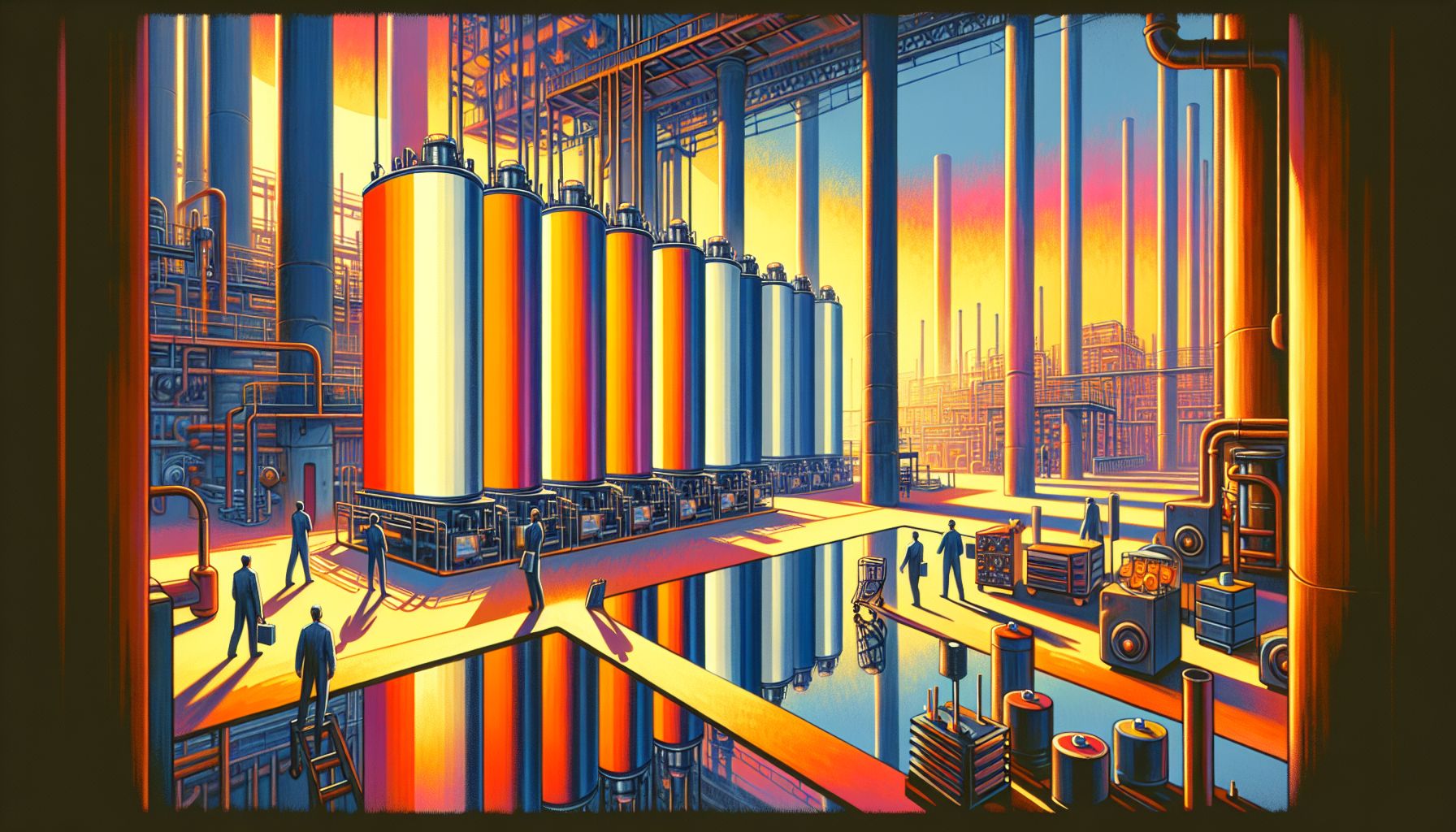LG Gears Up for 'Supercell' EV Battery Production

Worldwide, Tuesday, 3 September 2024.
LG Energy Solution aims to commence mass production of revolutionary 4680-type cylindrical battery cells by December 2024. These ‘supercells’ promise higher energy density, improved efficiency, and cost savings, potentially transforming the electric vehicle industry.
The Race for Superior EV Batteries
LG Energy Solution, a South Korean company, is positioning itself at the forefront of the next-generation electric vehicle (EV) battery market with its 4680-type cylindrical cells, often nicknamed ‘supercells’. These batteries are designed to significantly outperform current market offerings, boasting five times the energy density and six times the output of conventional 2170 batteries. This leap in technology is expected to enhance the driving range of electric vehicles by at least 20%[1].
Technological Advancements and Challenges
The new 4680 battery measures 46 mm in diameter and 80 mm in length, offering a compact yet powerful solution for EVs. This battery type enhances efficiency, safety, and cost-effectiveness compared to traditional batteries. Despite these advantages, mass production has been delayed due to technological challenges. Initially slated to begin last month, LG now plans to start mass production in December 2024[2].
Global Competition Heats Up
LG is not alone in this technological race. Competitors like Samsung, Panasonic, SK On, and China’s CATL are also developing their versions of the 4680 battery. However, LG’s commitment to commencing mass production by December could give it a significant advantage in the market. Tesla, one of LG’s key partners, has struggled to produce these advanced batteries in-house, further emphasizing LG’s potential market lead[3].
Strategic Partnerships and Market Impact
In addition to its technological advancements, LG has formed strategic partnerships to secure a stable supply of essential materials. For example, a joint venture with Hyundai Motor Group aims to establish a battery cell production facility in Karawang, Indonesia, leveraging the country’s rich nickel resources. This facility is expected to produce 10 GWh of NCMA lithium-ion battery cells annually, enough for over 150,000 electric vehicles. Such collaborations are crucial for maintaining a competitive edge in the rapidly evolving EV market[4].
Future Outlook
The introduction of the 4680 ‘supercell’ is expected to be a game-changer for the EV industry, benefiting both manufacturers and consumers. Analysts predict it may take a decade for the widespread adoption of these batteries, but early movers like LG stand to gain a substantial market share. As the world shifts towards greener technologies, innovations such as the 4680 battery will play a pivotal role in reducing carbon emissions and promoting sustainable transportation solutions[5].

